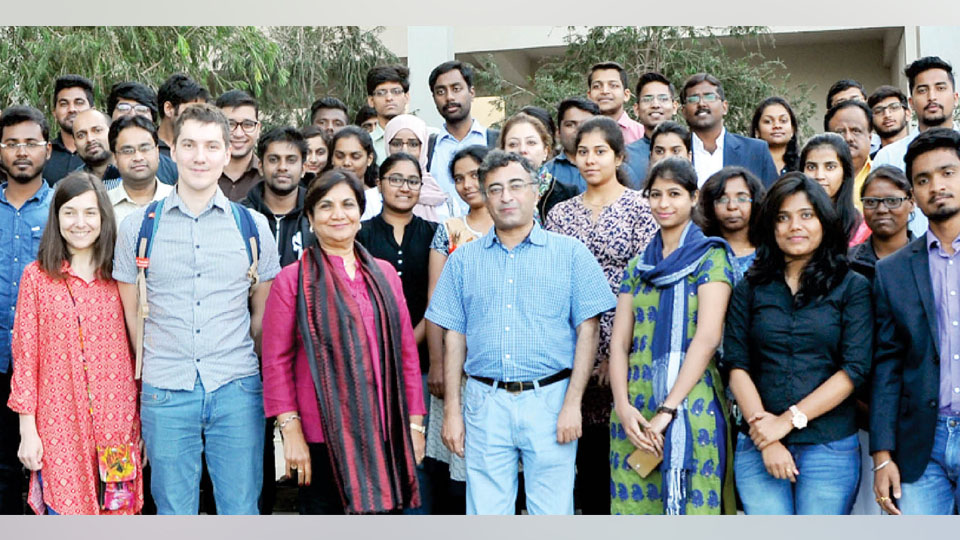Mysuru: MYRA School of Business hosted Dr. Dmytro Karamshuk – Senior Data scientist at Skyscanner, UK for its 37th edition of InSight Special Lecture Series at its premises in Yelwal recently.
Skyscanner is a leading global travel search site which is known to offer unbiased and free information. More than 60 million people visit and use Skyscanner data comprising the comprehensive range of flight, hotel and car hire options.
The MYRA lecture series was titled ‘Geo-Spotting – Mining Online Location-based Services for Optimal Retail Store Placement’. The problem of identifying the optimal location for a new retail store has been the focus of past research, especially in the field of land economy, due to its importance in the success of a business.
Traditional approaches to the problem have factored in demographics, revenue and aggregated human flow statistics from nearby or remote areas. However, the acquisition of relevant data is usually expensive. With the growth of location-based social networks, fine grained data describing user mobility and popularity of places has recently become attainable, all calling for the adoption of Geo-Spotting.
According to Dr. Karamshuk, Skyscanner helps its clients find the best location to begin a new business or if they need to move their business to a new or different location for expansion purposes. Popularity of a venue also depends on the co-location with other venues according to Dr. Karamshuk. To find the popular area one needs to define a radius with geographical coordinates, which depends on the number of venues in the area, heterogeneity of the venue types and percentage of competing venues.
Mobility features also depend on the factors like total number of check-ins, intensity of transition inside the area and intensity of transition outside the area based on Dr. Karamshuk’s research. Based on their potential and actual popularity, areas will be evaluated and ranked. Conducting regression will help in giving rank to the areas based on the significant factors of geographical and mobility features.
Dr. Karamshuk’s work has been published in top-tier academic conferences and journals. He has been featured in BBC and New Scientist. He worked for three years as post doctoral fellow at King’s College London and has earned his Ph.D (2013) in Computer Science and Engineering from Institute of Advanced Studies IMT Lucca, Italy.








Recent Comments